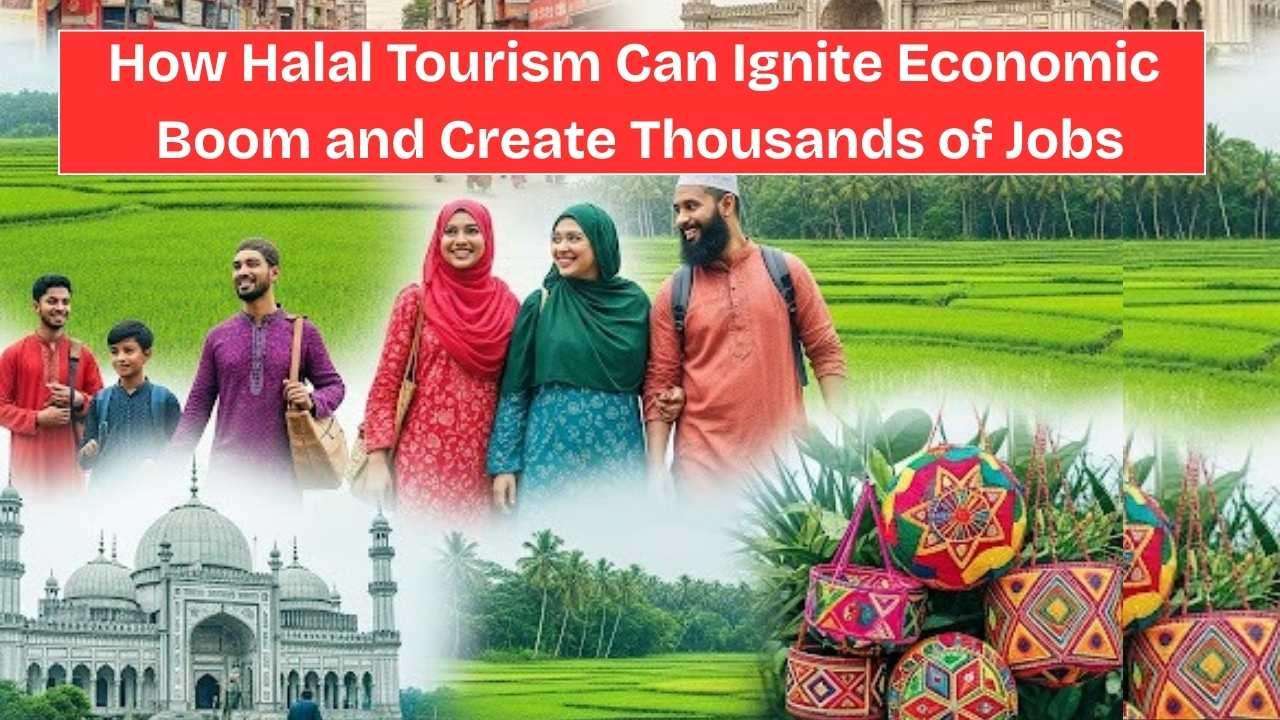With the global halal tourism market projected to reach a staggering US$225 billion by 2028, Bangladesh stands at the cusp of a transformative economic opportunity. As Halal Holidays officially launches its dedicated Muslim-friendly travel platform, HalalHolidays.asia, focusing on Asia's rapidly expanding halal travel sector, the spotlight turns to Bangladesh's immense, yet largely untapped, potential to become a leading halal holiday destination. This move could not only significantly boost the nation's economy but also generate employment for thousands of its citizens.
Bangladesh, a nation with a rich Islamic heritage and the fourth-largest Muslim population globally, possesses inherent advantages in catering to faith-conscious travellers. The recent launch of HalalHolidays.asia highlights the surging demand for travel options that align with religious requirements, offering certified halal meals, prayer facilities, modest accommodations, and culturally sensitive services. While countries like Thailand, Japan, Turkey, and the Maldives are already benefiting from this niche, Bangladesh's unique blend of natural beauty, historical Islamic sites, and a predominantly Muslim population positions it as an ideal candidate to attract this lucrative market.
Industry research, including insights from CrescentRating, reinforces Asia's emerging status as a halal travel hotspot. Muslim travellers are increasingly seeking authentic and fulfilling experiences that respect their faith, and Bangladesh can offer this in abundance. From its pristine beaches and lush green landscapes to ancient mosques and Sufi shrines, the country offers diverse attractions that can be tailored to Muslim-friendly packages.
"The halal tourism concept has been researched along with the components that make up the industry; discusses opportunities and challenges in the development and marketing of Islamic tourism; presents an analysis of marketing strategies in the halal tourism market and identifies prospects for the development of halal," notes a recent study on Bangladesh's halal tourism potential. Despite a significant Muslim population and a natural advantage in producing halal goods, Bangladesh has yet to fully capitalize on this growing global demand.
Currently, tourism contributes around 3-4% of Bangladesh's GDP, far less than the global average of 10%. While the country saw over 655,000 foreign tourists last year, this number pales in comparison to its neighbors. Developing the halal tourism sector could drastically increase international arrivals and expenditure, creating a ripple effect across various industries, including hospitality, food services, transportation, and retail. This expansion translates directly into substantial employment opportunities, particularly in rural and underdeveloped areas, empowering communities and fostering entrepreneurship.
What could be done by Bangladesh government and Private sector:
Government Initiatives:
Unified Halal Certification and Standards: Establish a robust and internationally recognized halal certification body for tourism services, including hotels, restaurants, and tour operators. This will build trust and credibility for Muslim travelers.
Infrastructure Development: Invest in upgrading and expanding infrastructure, including transportation networks (roads, railways, airports), utilities, and quality accommodation options in key tourist areas. The "Tourism Policy 2010" and the ongoing Tourism Master Plan (to be fully implemented by 2040) are steps in the right direction, aiming for $5 billion in revenue by 2040.
Policy and Incentives: Introduce attractive fiscal and non-fiscal incentives for private sector investment in halal tourism infrastructure and services. This includes tax breaks, land allocation, and streamlined approval processes for businesses adhering to halal standards.
Destination Branding and Marketing: Launch targeted global marketing campaigns highlighting Bangladesh's unique halal-friendly offerings, Islamic heritage sites, and natural beauty. This could involve collaborations with Muslim lifestyle influencers and participation in international halal travel expos.
Skill Development: Implement training programs for hospitality staff, tour guides, and other tourism professionals on halal tourism principles, cultural sensitivity, and multilingual services.
Community-Based Tourism (CBT): Continue and expand initiatives like the one in Jaflong, where the Bangladesh Tourism Board (BTB) and ILO are developing community-led, eco-friendly tourism that empowers local communities, particularly women and youth, through skill development and cultural preservation.
Public-Private Partnerships (PPPs): Foster stronger collaboration between the government and private sector to implement large-scale tourism projects, as outlined in the BTB's proposals for over $1 billion in private investment in various tourist zones.
Private Sector Initiatives:
Halal-Certified Offerings: Develop and promote fully halal-certified travel packages, accommodations, and dining experiences. This includes ensuring 100% halal-certified meals, readily available prayer facilities, modest swimming pools, and gender-segregated amenities where appropriate.
Specialized Tour Packages: Design unique offerings such as halal beach holidays, family-friendly packages, luxury escapes, cultural tours highlighting Islamic heritage, and Umrah Add-On Packages that combine spiritual journeys with leisure travel to nearby attractions.
Technological Integration: Invest in user-friendly mobile applications and online booking platforms that provide transparent information on halal amenities and real-time support from Muslim travel consultants fluent in English, Malay, and Arabic.
Strategic Partnerships: Forge alliances with halal-certified hotels, Islamic tour operators, restaurants, and community centers to create a comprehensive and reliable ecosystem for Muslim travelers.
Investment in Hospitality Infrastructure: Develop new hotels, resorts, and guesthouses that adhere to halal standards, particularly in high-potential areas like Cox's Bazar, Kuakata, and areas near significant Islamic heritage sites.
Innovative Experiences: Offer unique experiences that resonate with Muslim travelers, such as culinary tours focusing on traditional Bangladeshi halal cuisine, calligraphy workshops, or visits to local Islamic art and craft centers.
Sustainable and Ethical Tourism: Embrace eco-friendly practices and ethical tourism models that preserve natural beauty and support local communities, aligning with the values often sought by modern Muslim travelers.
By strategically developing its halal tourism sector, Bangladesh can unlock its full economic potential, create a multitude of jobs, and emerge as a vibrant, faith-conscious destination on the global map, attracting a significant share of the rapidly growing Muslim travel market. The time is ripe for Bangladesh to turn its intrinsic advantages into a major economic success story.








.svg)
